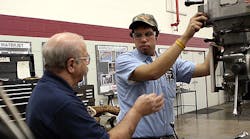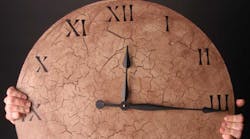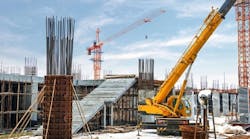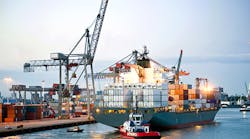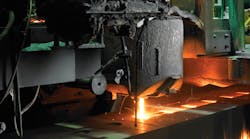When it comes to scrap, quality is more important than ever. But, with metal prices rising the risk of contaminated materials entering the supply chain is rising too. It’s a volatile moment for the metalcasting industry, and besides energy costs scrap has proven to be one of the most destabilizing factors in cost estimations. Fluctuations and uncertainty impact metalcasters’ bottom line, and ultimately increased expenses have to be reflected in occasional price increases or surcharges to casting buyers, and eventually passed on to consumers.
The continued economic global gloom means consumers retain appliances for longer than ever, thus reducing available scrap. Scrap metal prices rise accordingly. However, while European and U.S. markets have seen construction slow down, activity is increasing in China, India, Turkey, and other emerging markets, so scrap demand has not slackened.
Prices may not quite be at the construction-driven highs they reached in 2008, but scrap metal indices are still rising. And, any consumer recovery will probably lead to scrap prices rising again — as demand for “big ticket” items increases — before prices fall as consumers recycle their old equipment.
With scrap yields so high, the incentives are great for unscrupulous businesses to pursue their unprincipled profits, and contaminated scrap is a potential danger in our business.
Theft is a major concern in the communities where we do business in. Items commonly stolen range from manhole covers to church roofs, and include invaluable works of art melted down for their components, at a fraction of their original worth.
More worrying still is the theft of hazardous materials. For instance, in September 2009 there was an attempted theft of 25 tons of radioactive scrap metal from the site of the Chernobyl nuclear disaster in the former Soviet Union, reportedly with radiation levels 13 times higher than what is legally permitted.
Other sources of potential scrap-stream contamination are recycled food irradiation machinery, radiotherapy equipment (lead-lined cameras are especially hazardous), oil-and-gas industry machinery and equipment, and military technology. Discarded computer parts – sometimes known as “toxic e-waste” –also may be among the worst offending components.
Foundries' Common Concern
Thankfully, instances of serious contamination are rare. But, keeping scrap metal in its purest form is an issue of common concern to metal processing and metal producing industries, whenever the recycling takes place. Around one quarter of all scrap metal is consumed by iron and steel foundries to produce ferrous castings, and though iron foundries tend to be among the more conservative recyclers with regard to their selection of materials, there is a concern of scrap being contaminated by debris, passed off as quality materials, and if unchecked, entering the melt — and diluting purity.
The consequences of poor metallurgical standards can be a serious loss of quality for end products. Impurities in sufficient quantities can create blowholes and porosity in the metal. Products designed with a specific tensile strength can become too brittle or too elastic, causing elongation and giving rise to a risk of fracture. Good quality scrap leads to a much better pour, and higher quality results with better consistency.
The Victaulic Forks Foundry in Easton, PA, operates advanced Disamatic pouring equipment to produce high-quality custom castings from 2 to 25 lb./0.9 to 11.4 kg, with multiple pattern changes in short order. Victaulic also operates a state-of-the-art foundry in Mexico designed to handle one-metric-ton molds in a no-bake operation, manufacturing castings in very large dimensions; as well as the largest nonferrous foundry in Canada, producing high-quality, aluminum and bronze sand castings.
Victaulic castings purchases tens of thousands of metric tons of scrap globally every year, and around 40% of this is used in the U.S. The organization has rigorous quality assurance processes and controls in place at its installations around the world. Our suppliers obtain samples and approve the chemistry of all the metals we buy prior to purchase. Shipments are sealed before dispatch to prevent contamination, and Victaulic buyers and melt foremen carry out thorough inspections upon arrival through further visual and chemical examinations.
It is good to be vigilant and the metalcasting industry takes care in this area. We may not be facing a contagion of contamination, but neither is complacency an option for us. With quality control largely left to the oversight of individual importers — and, ultimately, of the foundries that use the parts themselves — it is important to protect our industry, and the finished-product consumer.
Didier Vassal is the vice president for Maritime & OEM markets at Victaulic, a producer of castings for mechanical pipe joining products, with foundries in the U.S., Canada, China, Mexico, and Poland. Visit www.victauliccastings.com
